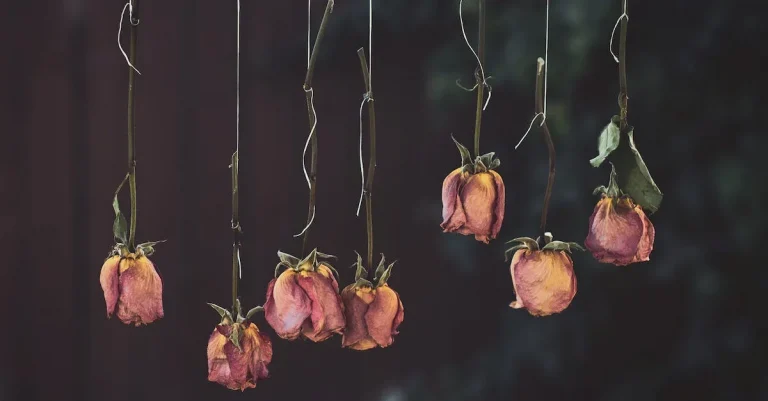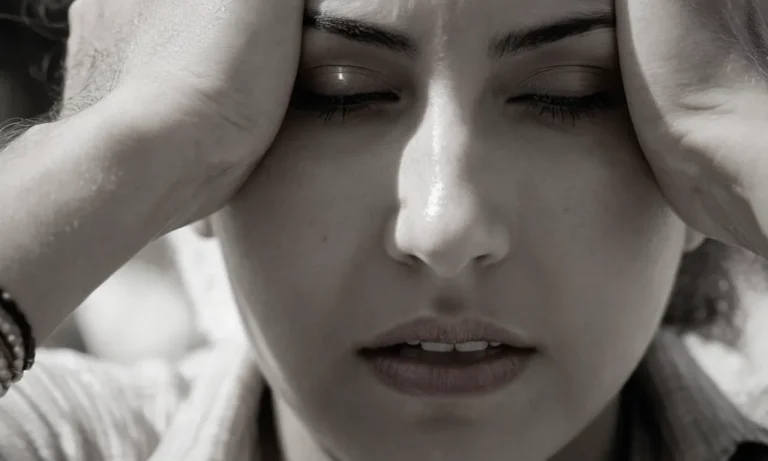The rooster is a familiar figure across many cultures and spiritual traditions. With its brash crowing announcing the dawn each day, the rooster symbolism is intertwined with concepts like awakening, renewal, courage, vigilance and more.
In short: The rooster is primarily associated with awaking at sunrise, being alert and vigilant, courage and pride, honesty and clarity, protection, potency and virility, purification, the announcement of news or spiritual messages, driving off evil, resurrection and renewal, fatherhood and family care, the sun and solar deities, and the connection between heaven and earth.
In this comprehensive guide, we dive deep into the history and spiritual meanings behind the magnificent rooster.
Symbolism of the Rooster Crow
Connection to the Rising Sun
Throughout history, the rooster has been strongly associated with the rising sun. This connection comes from the rooster’s habit of crowing loudly at the crack of dawn, often seen as a celebratory herald of the new day’s arrival.
In many cultures, the rooster’s crowing is believed to literally summon or aid the sunrise.
In ancient Egyptian mythology, the Bennu bird, similar to a heron or phoenix, was believed to crow to facilitate the sun’s renewal each morning. Other myths link the red hue of the rooster’s comb and wattle to the red glow cast by the rising sun.
This close tie to dawn and sunrise imbues the rooster with themes of restoration, renewal, and new beginnings. The rooster crows a triumphant reveille, awakening sleepers to welcome the returning light.
As warmth and illumination flood back into the world, the darkness retreats and the earth springs to life once more.
Awakening and Renewal
Beyond just the sunrise, the rooster serves as a bringer of awakening more broadly. Its loud wakeup call stirs creatures from slumber and alerts them that the new day has come. In Japan, the torii gates found at Shinto shrines often feature a rooster weathervane said to scare away night spirits so worshipers can commune in the light of a bright new day.
The rooster thus embodies renewal in a spiritual sense through this banishment of darkness. Across belief systems, hearing the rooster’s cry serves as a summons to cast off weariness, open our eyes to God’s grace and blessings around us, and embrace renewed energy and purpose for the dawn of a new day.
By extension, the rooster represents resurrection and reincarnation after death. Just as the rooster perpetually revives the sun, allowing a cyclical rebirth of the light, its crowing reminds believers of the soul receiving new life in the next realm.
This enduring promise of rebirth connects intrinsically to the theme of awakening.
Dispelling Evil and Darkness
Interwoven with awakening is the rooster’s perceived power to fend off evil spirits and demonic forces that emerge under the cloak of darkness. Rooster imagery commonly appears on weather vanes atop places of worship, with the belief that the rooster scare away malevolent beings cowering in the shadows.
| China | Rooster imagery placed on rooftops to ward off evil spirits |
| Europe | Rooster feathers hung on house fronts said to guard against black magic curses and spells |
In many folk beliefs, the roosters tweedling cry is physically painful to lurking evil spirits who then flee to escape further torment. The sun’s return subsequently banishes the remaining shadowy ghosts and demons altogether.
Through this dispelling of evil and darkness, the rooster facilitates spiritual renewal, cleansing, and purification. Evil energy recedes with the fading gloom while virtuous thoughts and deeds thrive in the returning light called forth by the rooster’s crow.
Rooster Symbolism in Ancient Cultures and Faiths
Rooster Beliefs in Ancient China
In ancient Chinese culture, the rooster is richly symbolic. According to Chinese astrology, people born in the Year of the Rooster are observant, hardworking, and courageous. Roosters also represent the coming of dawn and the defeating of darkness in Chinese folk legends.
This connects to the vigilant and watchful tendencies of real-life roosters who cry out at the first signs of morning light.
Ancient Chinese calendars and artwork often depict roosters as a solar symbol. Many Chinese temples and imperial palaces featured rooster weather vanes said to ward off evil. People even used rooster images on children’s clothing for protection.
The Chinese saw the rooster as a lucky emblem of the rising sun, signifying the triumph of light over darkness.
The Rooster in Greek Mythology
In Greek myths, the god Hermes placed the image of a rooster on his caduceus staff. This symbolized watchfulness and protection. Since Hermes was a messenger and guide, the rooster reminded souls to rise up out of sleep and go forth during their travels.
A famous myth tells of how the rooster’s crowing saved the gods from being attacked by giants. The rooster awoke the gods before the sneak attack, allowing them to transform themselves into animals and flee to Egypt.
Thus the Greeks credited the rooster for bravely warning the gods of impending danger.
Rooster Symbolism in Christianity
In the New Testament Bible, Jesus predicted that Peter would deny him three times before the rooster crowed. Just as Jesus foretold, Peter did deny knowing Him right before the rooster announcement of dawn.
Because of this Biblical story, the rooster became a symbol for Christians about core values like honesty, integrity, and repentance. The rooster calls out hypocrisy and affirms the prodigal can return to faith.
As Christianity spread, rooster images were adopted into religious iconography and church architecture over time.
| Culture | Key Rooster Symbolism and Meanings |
|---|---|
| Chinese | Dawn, defeating darkness, vigilance, luck |
| Greek | Watchfulness, warning, protection |
| Christian | Honesty, repentance, hypocrisy |
As we can see, this vocal farm resident has inspired rich cultural legends, myths, and symbolism related to themes of vigilance, luck, dishonesty, and redemption. The rooster continues crowing out meaningful messages across histories and traditions over time.
Important Rooster Attributes and Meanings
Courage and Pride
Roosters are known for their courage and pride. In many cultures, the rooster is seen as a proud animal that boldly announces the dawn each morning with its crowing. This is symbolic of having the courage and confidence to greet each new day.
Just as the rooster crows without fear, we can embrace everyday with vigor and valor.
Virility
The rooster has long been associated with virility, fertility and masculine energy. This connection comes from observations of the rooster’s behavior in the henhouse as it tends to and mates with multiple hens. The rooster’s crowing is a sign of its dominance and vibrant mating prowess.
So when we see rooster symbolism, it can represent a lively libido, masculine potency, and boundless creative life force.
Communication
As the rooster broadcasts its trademark crow, it shows the power of communication and vocalization. The rooster essentially wakes up the whole countryside with its voice every morning! When we channel the rooster spirit, we can find strength in expressing ourselves, speaking our truths and making sure we are heard.
The rooster meaning reminds us how important our unique voices are.
Protection
In some cultural folklore, the rooster is seen as a protective figure. Its crowing is thought to fend off evil spirits that come out at night. When a rooster crows at dawn, it signals that the darkness is retreating and safety is close at hand.
Additionally, the rooster will fiercely protect the hens from harm. So if rooster symbolism enters your awareness, it could signify a need for security, guardianship and trustworthy caretakers watching over you.
Cultural and Regional Rooster Symbolism
Year of the Rooster in Chinese Zodiac
In the Chinese zodiac, each year is associated with one of 12 animals. The rooster is the 10th animal in this 12-year cycle. According to legends, the Jade Emperor declared that the order of the animals would be determined by the order they arrived to his party.
The rooster woke up late but was able to arrive on time by perching on the back of the ox. Years of the Rooster include 1945, 1957, 1969, 1981, 1993, 2005, 2017, and 2029.
Those born in a Year of the Rooster are believed to be observant, hardworking, courageous, talented, skilled at time management, and resourceful. Some negatives associated with the sign include overconfidence and a tendency to flaunt success.
Famous Rooster celebrities include Beyoncé, Jennifer Lopez, Mick Jagger, Catherine Zeta-Jones, and Ellen DeGeneres.
Kapparos Ritual in Judaism
In some Jewish communities, a ritual called kapparos is performed before Yom Kippur. The practitioner waves a live rooster or hen over their head three times while reciting a prayer. The prayer transfers the person’s sins symbolically onto the bird.
The rooster or hen is then slaughtered according to kosher rules and either donated to the poor or eaten at the pre-fast meal.
This ritual traces back to customs when people would sacrifice a rooster as an atonement offering. Using a rooster serves as a symbolic replacement for the person’s soul. While controversial among some Jewish authorities, supporters of the ritual view it as a meaningful embodiment of the process of repentance.
They emphasize that the slaughter must be conducted humanely by a trained religious expert.
Weather Vane Tradition
Figure of roosters have long been used in weather vanes on public buildings, farms, and houses. This tradition may originate from a belief in France that roosters served as wind direction indicators. According to this folklore, roosters would face the direction where the wind was blowing from and crow.
Another theory links the rooster weather vane to Christianity. The rooster symbolized Peter’s denial of Christ before the crucifixion. Placed as a reminder atop churches, a rooster weather vane represented repentance and serving as a wind indicator showed which way the Holy Spirit was blowing.
Whatever its exact origins, the rooster wind vane remains a popular ornament even today. Made of metal or wood, rooster weather vanes stand proudly rotating to display the slightest changes in wind direction.
Rooster Totems and Spirit Animals
Roosters are known for crowing at dawn and announcing the start of new days. This makes them symbolic of awakening, renewal, and vigilance. As a spirit animal, roosters encourage us to wake up to each new day with passion and purpose. They remind us that every sunrise brings opportunities for growth.
People with rooster totems are often excellent at rising early and tend to be hardworking and productive. They have a talent for motivating and mobilizing others. With excellent time management and organizational skills, they can achieve ambitious goals.
Those who identify with roosters are great at multi-tasking. They can keep many plates spinning at once with their gift for focus and efficiency. However, they should be careful not to push themselves too hard. Making time for proper rest is key.
In many cultures, roosters represent courage, honesty, and fairness. Their loud crowing is seen as a way to boldly speak their truth without fear. People with this spirit animal gain strength from standing up for principles.
With their vigilance and perceptiveness, those who channel the rooster energy make wonderful guardians and protectors. Their ability to notice even subtle shifts makes them adept at spotting danger or deception. They use their foresight and intuition to keep loved ones safe.
Conclusion
With its bold crow welcoming the dawn and radiant sunrise each day, the rooster has accrued rich symbolic meaning across cultures and faiths over the centuries.
This proud bird urges us to awaken and rise to greet each new day, to stand vigilant as a protective force for what we care about, and to tap into our innate courage no matter what challenges arise, facing them with heads held high.






